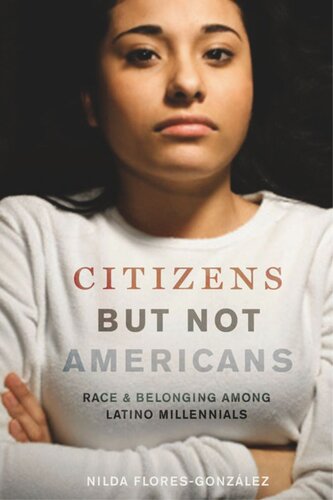

Most ebook files are in PDF format, so you can easily read them using various software such as Foxit Reader or directly on the Google Chrome browser.
Some ebook files are released by publishers in other formats such as .awz, .mobi, .epub, .fb2, etc. You may need to install specific software to read these formats on mobile/PC, such as Calibre.
Please read the tutorial at this link: https://ebookbell.com/faq
We offer FREE conversion to the popular formats you request; however, this may take some time. Therefore, right after payment, please email us, and we will try to provide the service as quickly as possible.
For some exceptional file formats or broken links (if any), please refrain from opening any disputes. Instead, email us first, and we will try to assist within a maximum of 6 hours.
EbookBell Team

4.7
96 reviewsAn exploration of how race shapes Latino millennials’ notions of national belonging
Latino millennials constitute the second largest segment of the millennial population. By sheer numbers they will inevitably have a significant social, economic, and political impact on U.S. society. Beyond basic demographics, however, not much is known about how they make sense of themselves as Americans.
In Citizens but Not Americans,Nilda Flores-González examines how Latino millennials understand race, experience race, and develop notions of belonging. Based on nearly one hundred interviews, Flores-González argues that though these young Latina/os are U.S. citizens by birth, they do not feel they are part of the “American project,” and are forever at the margins looking in. The book provides an inside look at how characteristics such as ancestry, skin color, social class, gender, language and culture converge and shape these youths’ feelings of belonging as they navigate everyday racialization.
The voices of Latino millennials reveal their understanding of racialization along three dimensions—as an ethno-race, as a racial middle and as ‘real’ Americans. Using familiar tropes, these youths contest the othering that negates their Americanness while constructing notions of belonging that allow them to locate themselves as authentic members of the American national community.
Challenging current thinking about race and national belonging, Citizens but Not Americans significantly contributes to our understanding of the Latino millennial generation and makes a powerful argument about the nature of race and belonging in the U.S.